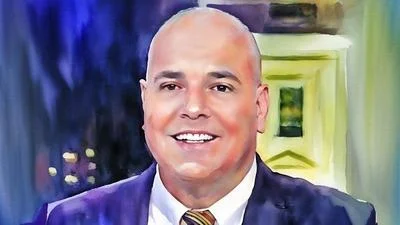U.S. military veterans have stood as the backbone of the nation’s defense and civic legacy. From the citizen-soldiers of the Revolutionary War to today’s all-volunteer force, veterans have borne the burden of battle but also returned home to lead in business, government, and public life.
With fewer than 10% of Americans now having served, advocates like retired Army officer Jim Lechner are reminding the country that veterans bring unmatched leadership and discipline into the civilian workforce, and they deserve more than symbolic appreciation—they deserve policies that reflect the gravity of their sacrifice.
Lechner, a retired U.S. Army infantry officer, dedicates his post-military life to advocating for veterans. He served for 27 years and was involved in six conflicts—Sinai, Bosnia, Iraq, Afghanistan, Somalia, and Ukraine. He is a graduate of The Citadel, and served as advisor to the National Security Council and CIA, and as adjunct professor of history at Liberty University,
He tells the story of his first combat deployment in his book With My Shield: An Army Ranger in Somalia. But the larger story he’s now telling is about those who came home and deserve more than thanks. He believes they deserve opportunity, dignity, and a system that works to serve them.
“The definition of a veteran, according to the Veterans Administration, is someone who has honorably served and completed their term of service,” Lechner says. “That’s a very important definition. There’s a lot that comes with that—things that person has earned just by meeting that baseline.”
He stresses the significance of the all-volunteer force. “These are people who have stood up and volunteered to sacrifice everything if need be,” he says. “They’re doing it for their family–they’re doing it for their country.”
For Lechner, military service is more than an important job—it’s a profound commitment. “If you’ve served honorably and completed your term, the nation owes a debt to you, especially in the context of a volunteer force,” he says. “Very few people are even in a position to give back in that way, but veterans have.”
Lechner believes that debt is far from paid. “I don’t think we’re serving our veterans very well,” he says, and attributes the problem to “the intersection of need and federal bureaucracy.”
He is careful to recognize America’s cultural respect for veterans. “I don’t think there’s an intent to disrespect veterans, but the bureaucracy creates mind-numbing delays and inefficiencies,” which Lechner says even he has experienced.
Lechner sees opportunity for reform. “I’m very dedicated to giving opportunity to veterans, to promoting them, and doing the best we can for them,” he says. And he sees the current moment as one opportunity. “As we reform broken systems, we should refocus on serving veterans and promoting them in the economy and the workforce.”
He believes that hiring and promoting veterans is an ideal place to make American appreciation and respect for them known. “Let’s put some emphasis and prioritization on veterans,” he encourages employers. “Veterans deserve a fair shot–they’ve earned it.”
Lechner worries, though, that veterans could be lost in broad bureaucratic battles over equity mandates. “We need to ensure that veterans programs aren’t somehow lumped into the DEI mix and undermined,” he says. The effort should be “about equal opportunity—not forced outcomes.” He clarifies: “I’m not saying we don’t need systems to ensure fairness, but they should be based on performance and merit.”
He worries that a disconnect contributes to a system that forgets those who’ve already sacrificed. “There’s no intent to harm veterans, but the system fails them because it’s not built to prioritize their unique needs. And the bureaucracy just compounds that.”
The problem, as Lechner sees it, does not just lie at the Department of Veterans Affairs—it’s in the wider cultural approach. “Veterans should be seen as an asset,” because “they bring leadership, discipline, and experience.”
He also connects veterans’ issues to national readiness. “When only three percent of Americans have served, the rest of the country is disconnected from the burden of war,” he says, and believes this is not sustainable. As for conflict, ”the nation has to be committed when we send our sons and daughters into battle–it can’t just be the military bearing the weight.”
Lechner calls the current moment “a chance to reorient.” He wants to fix “broken systems” and use that as momentum to make veterans a centerpiece of reform. “They’ve already done their part,” he says. “Now it’s our turn.”









